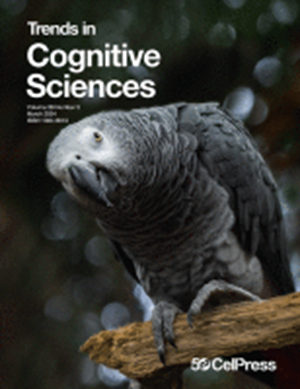用人工智能检测欺骗:承诺与危险。
IF 16.7
1区 心理学
Q1 BEHAVIORAL SCIENCES
Trends in Cognitive Sciences
Pub Date : 2024-06-01
Epub Date: 2024-04-21
DOI:10.1016/j.tics.2024.04.002
引用次数: 0
摘要
人工智能(AI)的飞速发展激发了人们对其在谎言检测中潜在应用的兴趣。遗憾的是,目前的方法主要侧重于技术方面,而忽略了坚实的方法论和理论基础。我们将讨论其中的影响,并为基于人工智能的欺骗检测的发展和监管提出建议。本文章由计算机程序翻译,如有差异,请以英文原文为准。
Detecting deception with artificial intelligence: promises and perils.
Rapid advancements in artificial intelligence (AI) have driven interest in its potential application for lie detection. Unfortunately, the current approaches have primarily focused on technical aspects at the expense of a solid methodological and theoretical foundation. We discuss the implications thereof and offer recommendations for the development and regulation of AI-based deception detection.
求助全文
通过发布文献求助,成功后即可免费获取论文全文。
去求助
来源期刊

Trends in Cognitive Sciences
医学-行为科学
CiteScore
27.90
自引率
1.50%
发文量
156
审稿时长
6-12 weeks
期刊介绍:
Essential reading for those working directly in the cognitive sciences or in related specialist areas, Trends in Cognitive Sciences provides an instant overview of current thinking for scientists, students and teachers who want to keep up with the latest developments in the cognitive sciences. The journal brings together research in psychology, artificial intelligence, linguistics, philosophy, computer science and neuroscience. Trends in Cognitive Sciences provides a platform for the interaction of these disciplines and the evolution of cognitive science as an independent field of study.
 求助内容:
求助内容: 应助结果提醒方式:
应助结果提醒方式:


